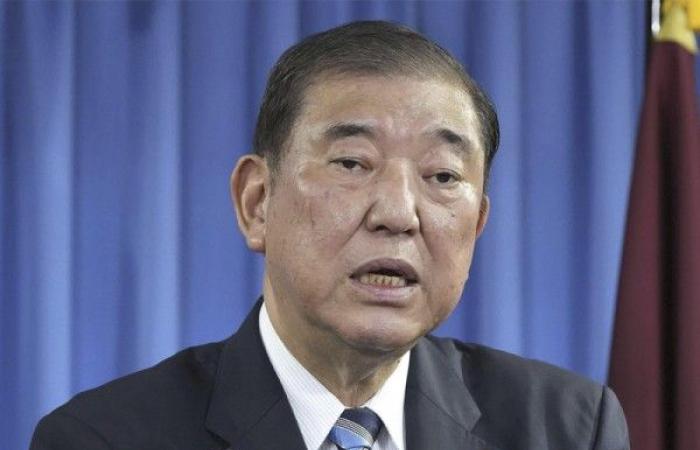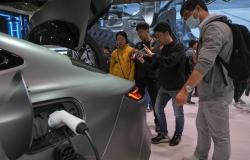Shigeru Ishiba, 67, won a close race on Friday to lead the Liberal Democratic Party (PLD), the party in power almost without interruption in Japan since 1955.
Shigeru Ishiba, appointed Friday by his party, must officially become Prime Minister of Japan on Tuesday, where he wants to call early legislative elections on October 27 before tackling a series of economic, political and international challenges.
Mr. Ishiba, 67, won a close race on Friday to lead the Liberal Democratic Party (PLD), the party in power almost continuously in Japan since 1955.
He is almost guaranteed to be elected head of government on Tuesday afternoon by both houses of the Japanese Parliament, where the PLD has an overwhelming majority, and was expected to immediately announce the composition of his government.
Former general secretary of the executive branch, Katsunobu Kato, is tipped to become finance minister, while Gen Nakatani would be in charge of Defense and Takeshi Iwaya of Foreign Affairs, according to local media.
Mr. Ishiba, a seasoned politician who has already held several ministerial positions including Defense and Agriculture, had previously tried four times to take the reins of the PLD, without success.
“Restore public confidence”
His personality, which divides within the party, is the opposite of that of his predecessor Fumio Kishida, relatively popular among voters, according to analysts.
Mr. Ishiba’s victory “indicates that the LDP has been seeking an experienced leader with broad voter support to lead the party in the upcoming national elections,” said Yuko Nakano of the Center for Strategic and International Studies.
“If the ruling coalition wins another term, Mr. Ishiba will have the opportunity to reshape the party’s internal dynamics and restore public trust, while tackling Japan’s broader challenges, including perceived economic stagnation. by many voters and regional security concerns,” added Ms. Nakano.
Among a series of challenges on the economic and political levels as well as on the international scene, Mr. Ishiba will be confronted in particular with the sluggish consumption of Japanese households and the weakness of wage growth, which constitute a brake on growth of the country.
Shigeru Ishiba supports monetary normalization initiated by the Bank of Japan this year, a stance that sent the yen surging on Friday and sending the Tokyo Stock Exchange tumbling on Monday, where investors also feared the prospect of corporate tax hikes .
The worrying issue of the falling birth rate in Japan – which has the oldest population in the world behind Monaco – should also be among his priorities, with Mr Ishiba particularly keen to tackle the problems of the number of working hours and strengthen support for parents.
He will also have to face voters’ distrust of his party after a series of political and financial scandals which shook it and undermined Mr. Kishida’s popularity rating.
Regional tensions
Beyond Japanese borders, the new leader will also have to manage international tensions, while his predecessor committed to doubling defense spending and strengthening ties with the United States and other countries shaken by the rise of China and the behavior of Russia and North Korea.
Last week, a Japanese warship crossed the Taiwan Strait for the first time. A week earlier, a Chinese aircraft carrier had sailed between two Japanese islands near Taiwan.
Japan has also taken off fighter jets several times in recent weeks to respond to the activities of Russian and Chinese aircraft, including in its airspace.
Mr. Ishiba, who visited Taiwan in August, is in favor of the creation of a military alliance in the region, based on the model of NATO and its principle of collective defense.
“By replacing Russia with China and Ukraine with Taiwan, the absence of a system of collective self-defense like that of NATO in Asia means that wars are likely to break out because there is no has no mutual defense obligation,” Mr. Ishiba said in a recent policy paper.






